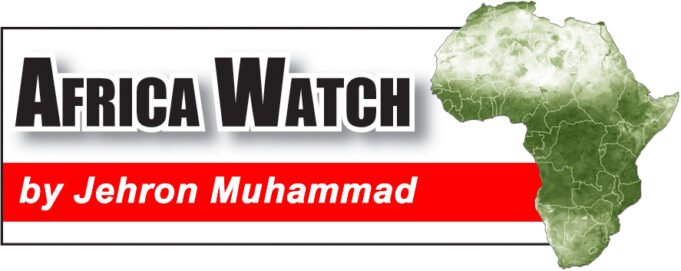Africa’s awakening in 2023 has been perplexing, at times disturbing and dramatic, but also inspirational. It can be summed in the “twoness” or duality of the sojourn of American Black folks as expressed in the sudden awaking to their colonial and neocolonial past. This “twoness” was defined by Pan-Africanist and activist scholar W. E. B. Du Bois in his seminal 1903 work, “The Souls of Black Folk,” which introduced this concept of double consciousness.
“It is a peculiar sensation, this double consciousness … one ever feels his two-ness, an American, a Negro; two souls, two thoughts, two un-reconciled strivings; two warring ideals in one dark body, whose dogged strength alone keeps it from being torn asunder,” Du Bois wrote.
Though the continent continues to suffer from the illiberalism of American-style democracy and the bent toward the seemingly never-ending retooling of the American and European neocolonial past, its awakening can also be seen as a rebirth of Mother Africa. It can also be seen through the book of Hebrews, 11:1 in the Bible which states: “Now faith is the substance of things hoped for, the evidence of things unseen.”
This apparent acknowledgment of Africa’s colonial and neocolonial history has put on Africa the onerousness of freeing itself from its oppression-filled past.
Today, some observers note that there are examples of countries taking up this charge being played out including military coups like in Niger, Burkina Faso and Mali, and the threatened military response to the coup leaders by the Western-backed Economic Community of West African States (ECOWAS). Or the example of the upcoming BRICS Summit in South Africa, hosted by Brazil, Russia, India, China, and South Africa, and the much-reported planned “de-dollarization” of the Global South.
Africa has historically been seen in the insurmountable position of being plagued by unequaled debt, the continued exploitation of its mineral and natural resources, increasing conflicts brought on by coups, and growing refugee crises brought on by the growing conflict in Sudan. Add to that a capitalist-imperialist foe that utilizes the American dollar as a currency of exploitation and financial control, according to economist Michael Hudson.
“The dollar is not simply a dollar that you have in your pocket. It’s the whole financial system centralized by the United States that holds veto power in any International Organization it joins. So, unlike other countries, the U.S. is the only country that can veto any organization that it joins and makes sure that it can control them by the way in which it has legally designed these organizations,” Hudson said during an interview with content creator Ania K posted on YouTube. These organizations include the World Bank, the International Monetary Fund, NATO, and the United Nations.
Journalist Ben Norton, host of the Geo-Political Economy program, also pointed out how the coup in Niger is popular among that country’s population. Norton, during his recent show titled “Niger Coup: 78 percent of people support military government (of General Abdourahamane Tchiani) anti-colonial policies,” quoted information from the Economist Magazine about the turmoil in the country. He revealed the reasons why there is so much popular support for Niger’s newly installed military government.
Tens of thousands fill the stadium in Niger’s capital city Niamey, “with cheering supporters and then symbolically beheaded a rooster painted in the colors of its former colonial master France, in support of the coup,” said Norton.
The United States has also come face-to-face with the stance exhibited in Niger. Assistant Secretary of State Victoria Nuland, whose husband is prominent neoconservative Robert Kagan, received no satisfaction during negotiations with the military government to reinstall ousted president Mohamed Bazoum. In fact, Bazoun is to be tried for treason by the new military government and has demanded that France remove its 1,500 troops stationed in Niger.
According to taskandpurpose.com, “The U.S. military is now unable to fly drones from its $110 million drone base in Niger “because the airspace has been closed.”
Several commentators have noted the fact that General Tchiani being trained by U.S. military Special Forces, wasn’t a deterrent to overthrowing a U.S. and France-backed government, which came to power with just two million votes out of a population of over 27 million. This country is one of the world’s poorest but has vast mineral and natural resources and this mix seemed to fit a possible criterion for a coup. This could also mean that other so-called democratically elected governments might be candidates to be overthrown militarily.
The political and economic weight of BRICS, at the upcoming South Africa-based summit, may be judged by the fact that it accounts for 42 percent of the world population, 27 percent of land area, 32 percent of GDP but only 16 percent of global trade. “Now, the grouping has been seriously considering a move to expand its membership. Depending on how it resolves this issue, the clout of BRICS could rise further,” reported wionews.com.
This expansion and continued stance by some African nations to look toward other strategic partnerships other than what the U.S. and the West have imposed could mean an inspirational new direction ahead for the continent.
Follow @JehronMuhammad on X formerly known as Twitter













